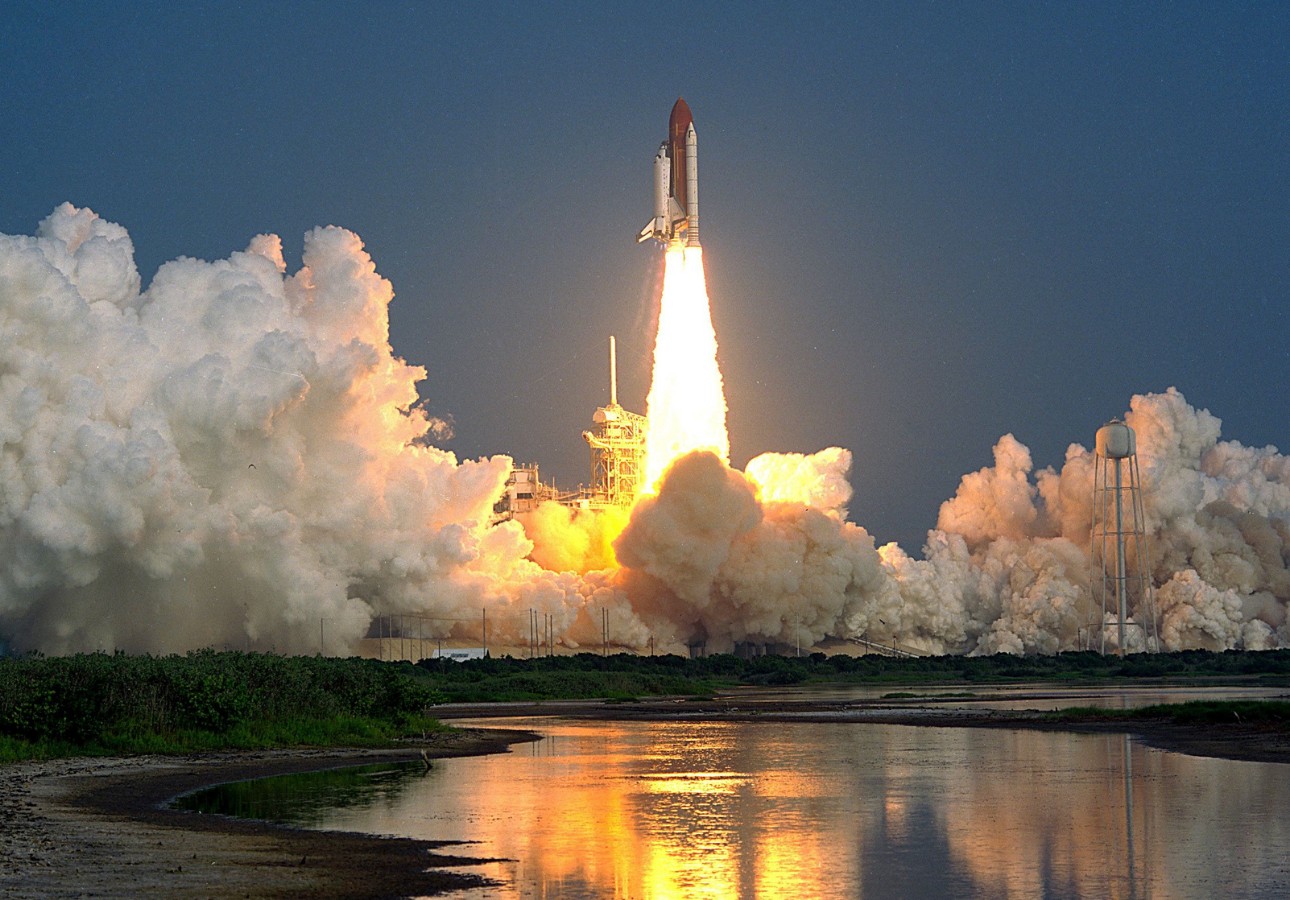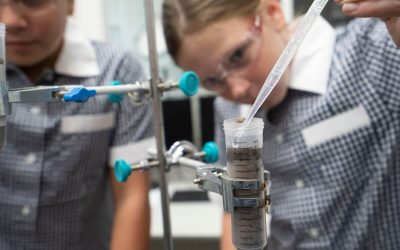Rocket ships are definitely cool, and there’s also some pretty serious science that goes on behind the scenes of making rockets fly – especially once they make it into space. Without rocket fuel, we never would have been able to put humans on the moon or explore the solar system, so scientists are always working hard to make better fuels that can take us further and help us explore the universe we live in.
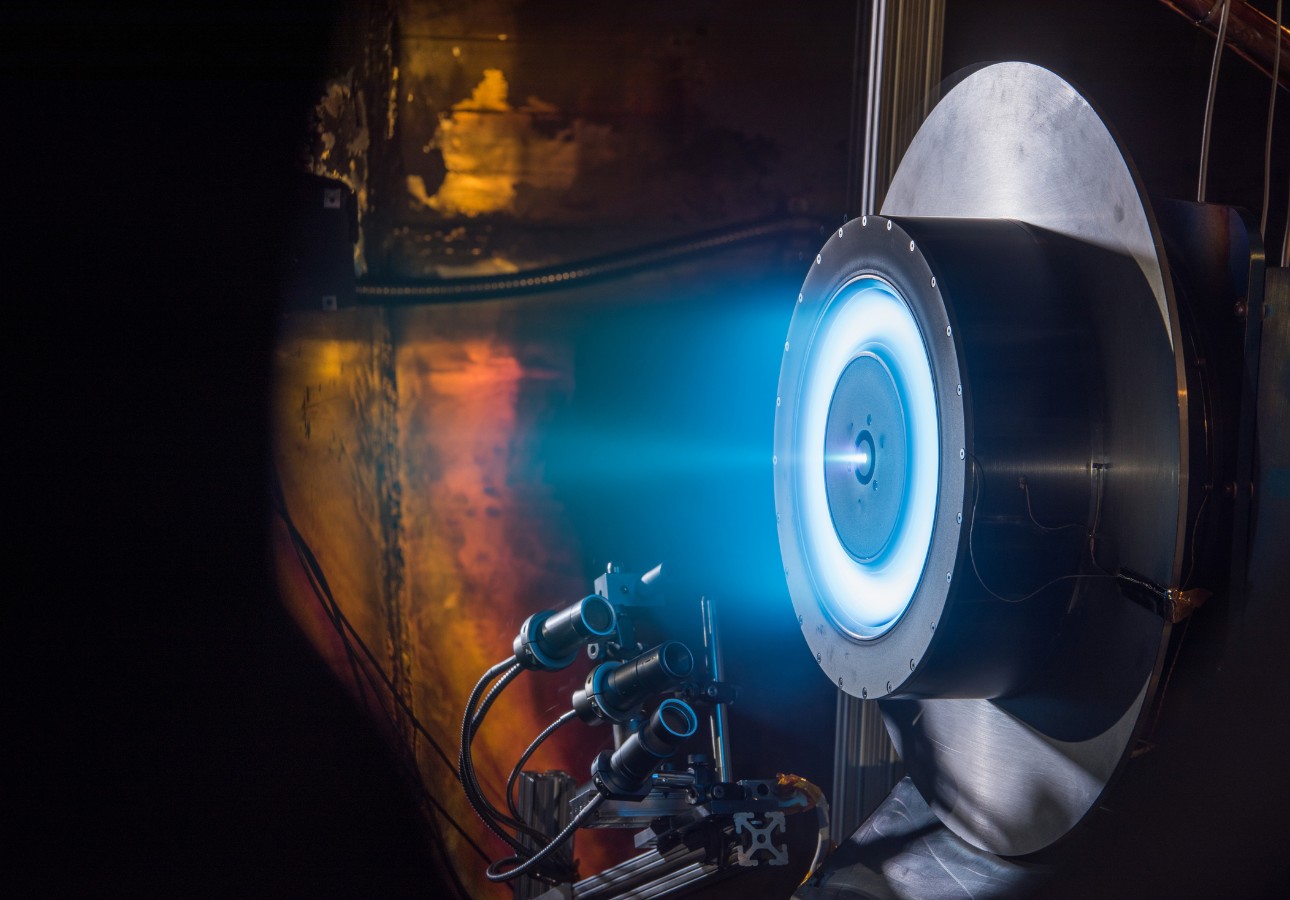
How Is Space Different?
Down here on Earth there’s no problem powering a car or the jet engines on a plane. They both work on the same principle as rocket ships – fuel is burned and the force that creates is used to move them along. In fact, if you only wanted to make a rocket that could fly in Earth’s atmosphere it wouldn’t be much of a challenge.
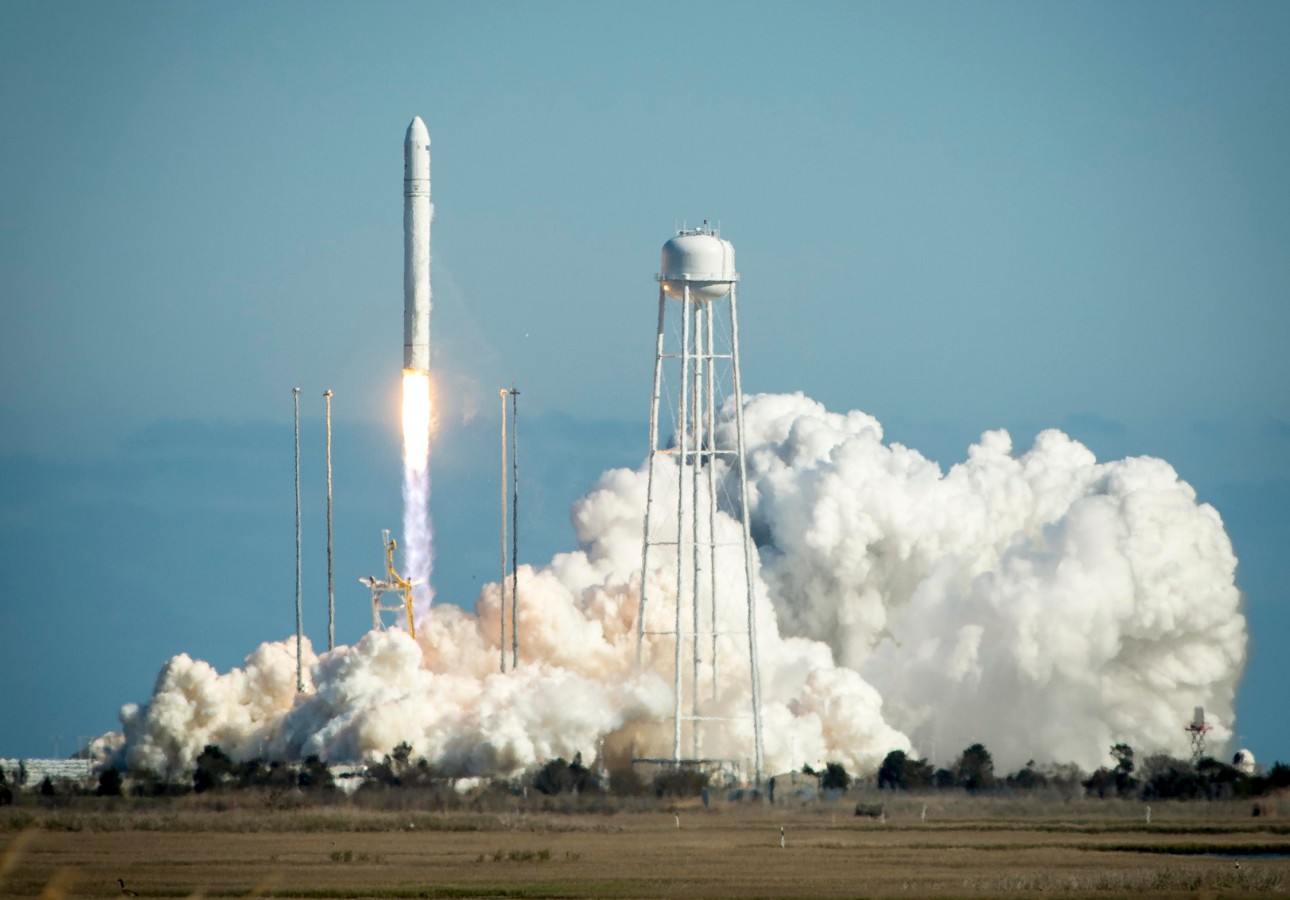
But high up above the Earth is where the trouble starts. You see, unlike on the surface of the planet where the air is made of oxygen and all sorts of things you can burn, space is a vacuum, meaning it’s almost completely empty. There’s so little up there that you can’t do things like burn fuel. If you struck a match in space it wouldn’t even catch fire, so you definitely couldn’t drive a car or fly a plane up there.
Making Fuel Work in a Vacuum
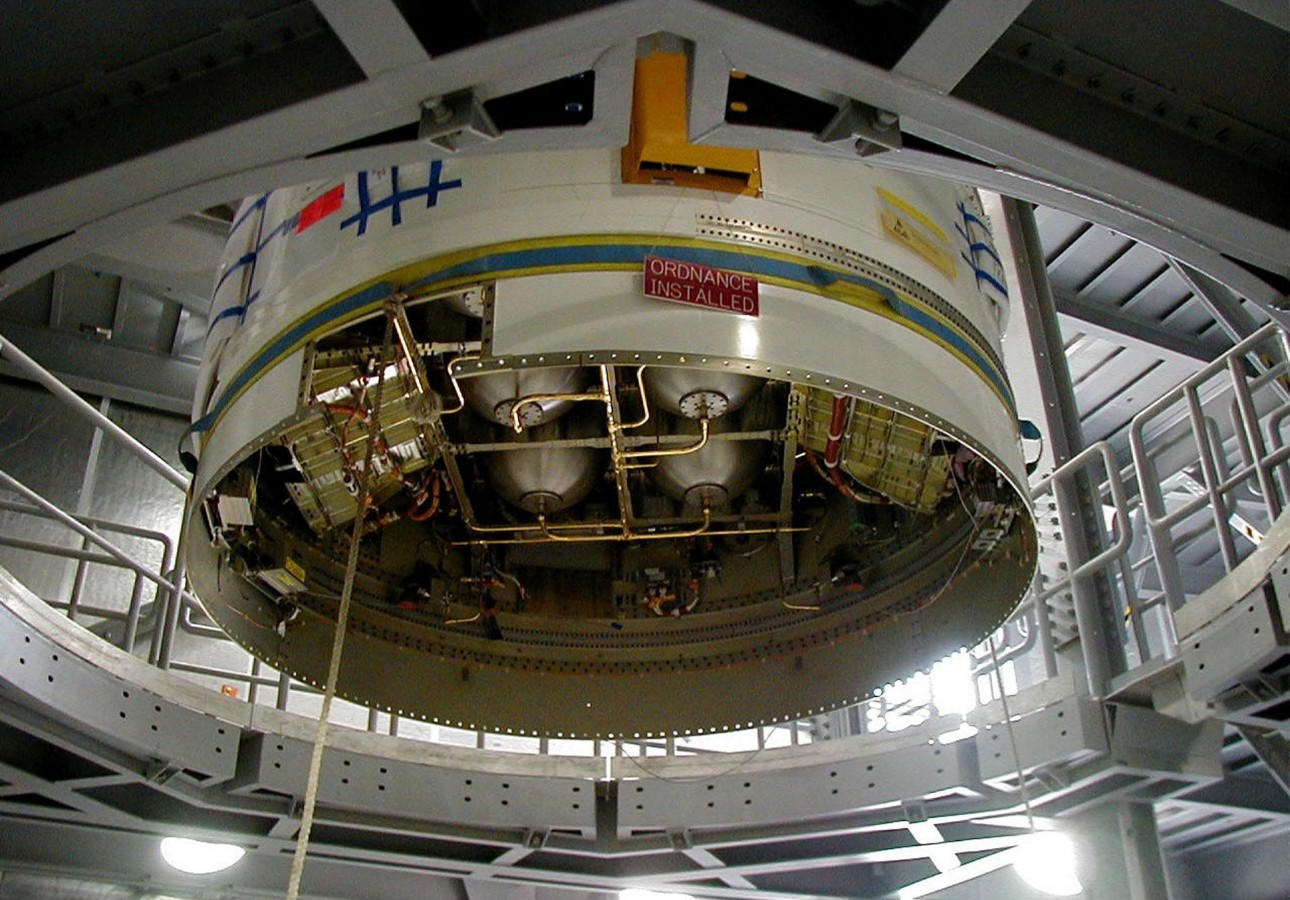
If you can’t burn anything in space then how do rockets fly? It’s a fair question. On the ground, you need two things to make a fire: fuel and an oxidiser. The fuel you use can be anything from the wood in a campfire to the petrol that powers our cars. It’s the oxidiser that’s the problem.
Oxygen is the most common oxidiser on Earth. When fuel is burned, the atoms in that fuel release electrons. An oxidiser accepts those electrons and the chemical reaction makes the fire burn much more intensely. Think of it like fanning the flames of a campfire to make them grow. That chemical reaction is important for rocket fuel because it takes an incredible amount of power to get a ship off the ground and into space.
Once it gets to space, without having an atmosphere around it, the rocket will need to bring its own oxidiser if it hopes to burn any of the fuel it’s carrying.
Solid vs Liquid Fuels
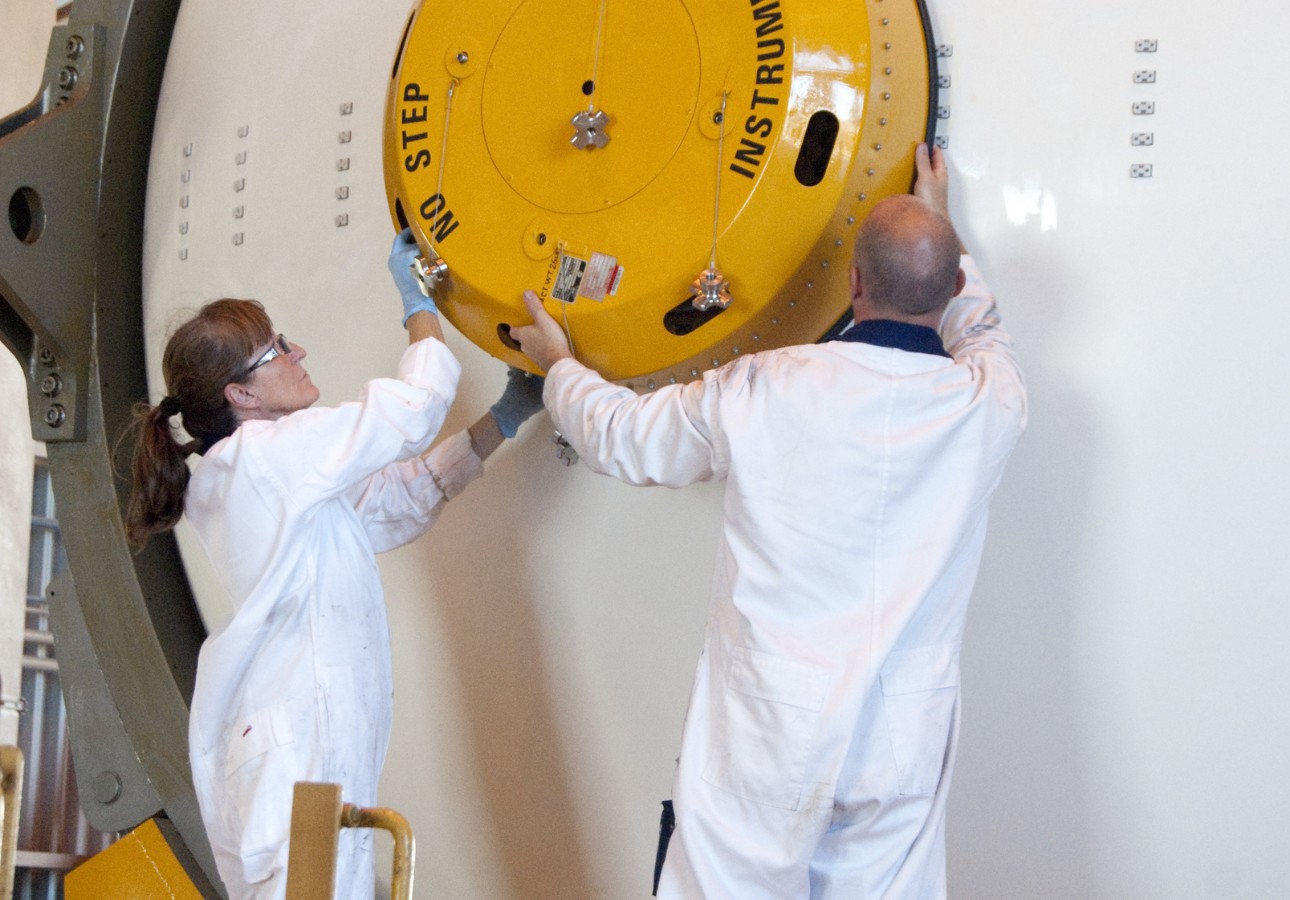
There are two main types of rocket fuel: solids and liquids.
Solid rocket fuel is made of a fuel and an oxidiser that have already been combined into a single lump of fuel. Once the fuel is ignited it supplies its own oxidiser and doesn’t need the help of oxygen in the atmosphere. Solid rocket fuels can be as simple as a mixture of aluminium and iron powder, and it means they’re easy to make and easy to store. The downside is that they have much less control than liquid rocket fuels. Once you ignite your solid fuel it will continue to burn at maximum power until it’s all used up.
Liquid rocket fuels are a little more complicated than solid fuels. Liquid rocket fuel is separated into the fuel and the oxidiser. Despite being a little harder to store and produce, liquid rocket fuels give you much more control over the amount of power your rocket is making. There are three kinds of liquid fuel:
- Petroleum. Kind of like the petrol that goes in a car, petroleum-based rocket fuels are processed into a super-efficient fuel known as kerosene. The kerosene is combined with liquid oxygen and burned to power rockets.
- Cryogens. Cryogenic fuels need to be kept at a very low temperature to make sure they stay liquid. They’re harder to store but they come in handy and are often used to keep rockets cool and stop them from being damaged by their own heat.
Hypergols. Hypergolic fuels are two liquids that ignite as soon as they are mixed. They’re easy to store and very easy to ignite, meaning they’re useful for rockets up in space that need to rely on their fuel to work every single time.
Most modern rockets use a mix of the two different fuel types. Solid fuels are used to get the rocket off the ground when they need the most power. Liquid fuels are then used in space where it’s better to have more control over the power a rocket is making.
Try It Yourself!
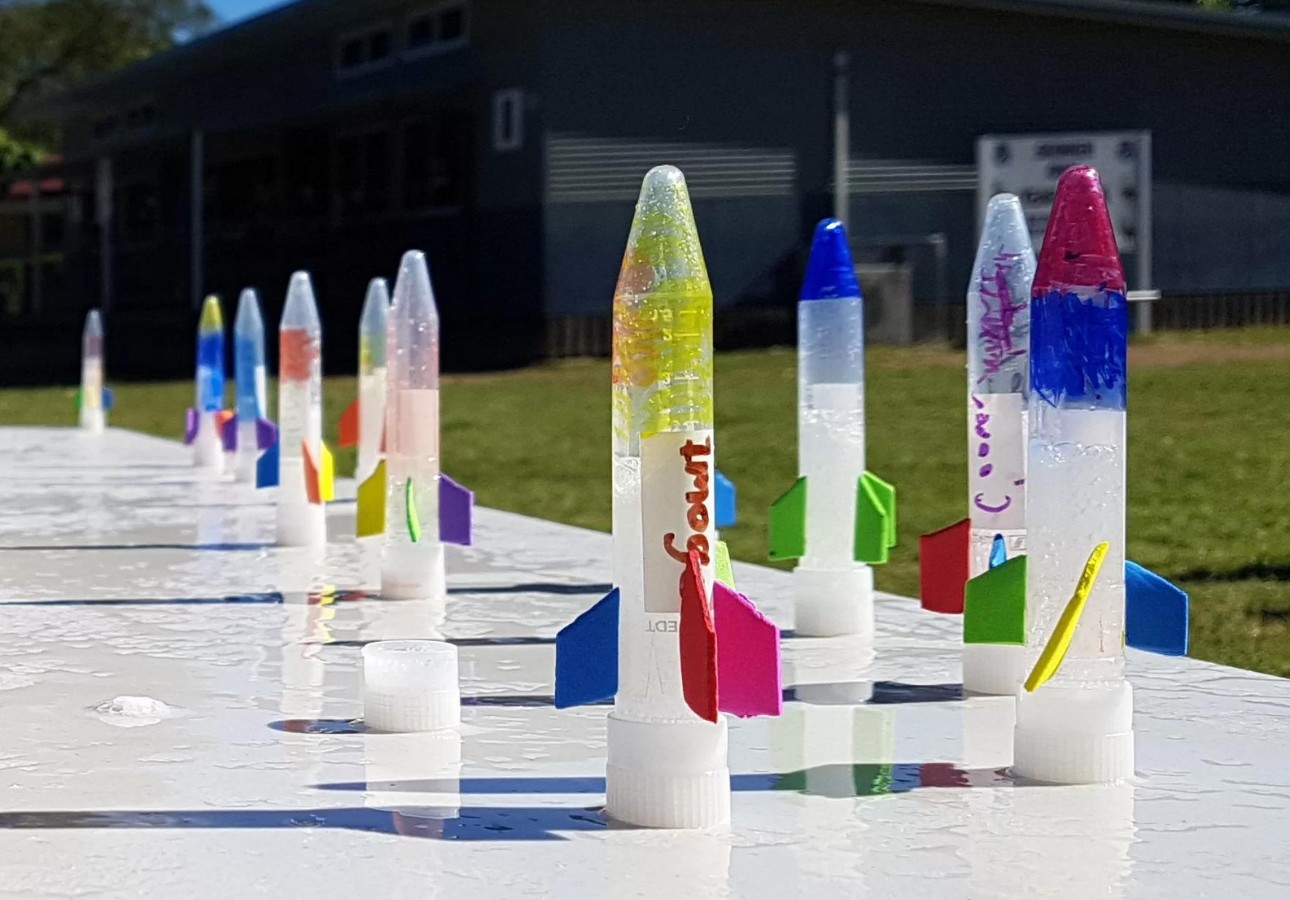
We told you that solid rocket fuels can be simple to make, and we have an easy experiment you can try at home to prove it. Make sure to get mum or dad’s help and follow our instructions on how to make your own rocket fuel. The ingredients are all easy to find and with a little patience, you’ll be launching your own mini rockets in no time!
Learn More About Rockets and Space With Street Science!
There’s a whole world up above our own, and space is a fascinating place that scientists are only just beginning to explore. If you’re interested in learning more about rocket science, fuels and what’s going on right now in space, you’ll love our Year 5 Workshop. Feel free to get in touch with our friendly team if you have any questions or would like to book one of our classes.

